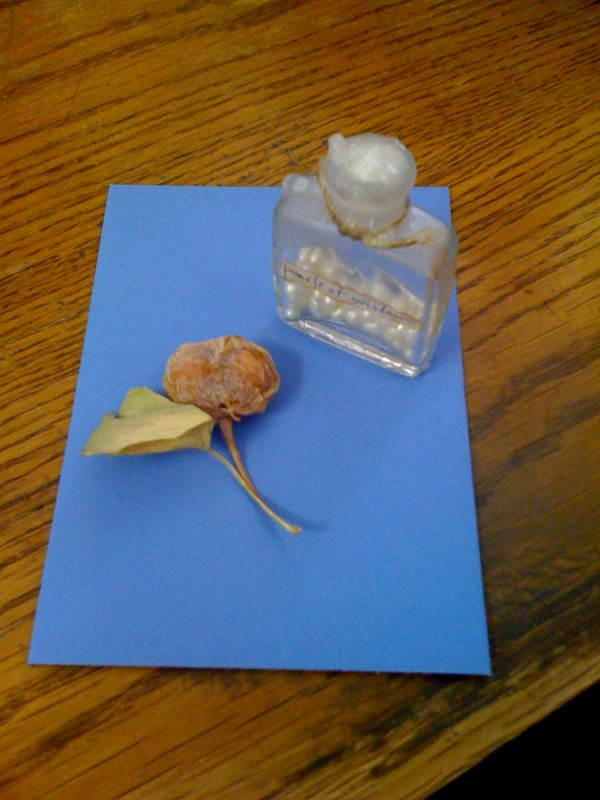
“Should Down syndrome be cured?”
posted Wednesday January 20th, 2010

Last week, New York Times blogger Lisa Belkin posed the question, “Should Down syndrome be cured?”
I posted a link to her piece, but I didn’t fire off a response. I needed to give the whole thing some thought, I figured. This is fundamental.
The truth is that I will think about this for my entire life and never have the right answer.
But as it turns out (and as the ever-wise starrlife observed), Belkin wasn’t being fair when she raised the question.
Belkin was referring to research at Stanford University into drugs designed to boost memory in people with Down syndrome.
I know about that research — or, at least, research related to it; I actually visited Stanford a few years ago, and met with one of the doctors doing it. He was very nice (I’ve written about this a bit before on GIAPH) — showed me a power point presentation, lowered my expectations significantly, then asked if I knew anyone with a lot of money who would like to donate to his research efforts.
After I spoke with the doctor, he let me tour one of the labs (I was disappointed that they wouldn’t let me see the mice they’d managed to “give” Down syndrome, but I guess with PETA around you can never be too careful) and another very nice man introduced me around to the researchers. I showed them pictures of Sophie, who was then about 2, and the very nice man led me to the window and pointed out a row of trees, just outside the lab.
“Those are ginko biloba trees,” he said. “If you eat the fruit, it can boost your memory. Some of the parents of kids with Down syndrome pick the fruit and give it to their kids.”
I got the message loud and clear. No super-brain drugs for Sophie — no time soon, anyway.
OK.
I left the lab and stood blinking in the fall sun, then strained on my tiptoes to pick a piece of ginko biloba fruit, which I wrapped in a Kleenex and brought home. It’s sitting on the windowsill in my office, next to a bottle of “pearls of wisdom” my friend Christa gave me for Christmas two years ago.
With all due respect to a far more successful journalist, Lisa Belkin started the wrong discussion. But really, I can’t imagine that there would be much debate over whether it’s a good idea to give people with Down syndrome memory-boosting drugs. It’s not like it would cure a genetic condition or, I’d bet, even fundamentally change a personality. It would just make life a little easier. And it’s not even like these drugs are available now; the recent study Belkin wrote about confirms that.
What a ho-hum discussion.
I’m no scientist, but I think I can safely say that there will never be a cure for Down syndrome — not once a person is born. Yes, you can have an abortion and avoid ever having a kid with Down syndrome. There’s your “cure”.
And I’m not saying you should or shouldn’t do that, though I’m beyond damn glad I didn’t. I truly wish I believed in God, so that every day, I could pray to him my thanks that I have Sophie.
And therein lies the rub. I don’t want Sophie to have Down syndrome, and it’s not (not really, anyway — not only, at least) because of her intellectual disability.
The truth is that the ginko biloba — and all it implies — is the least of my worries, as a parent of a child with Down syndrome. I learned that when Sophie was 5 days old and the doctor announced she had a hole in her heart. She’s had open heart surgery twice — so far.
I catch myself staring at Sophie a lot. Less and less, it’s about her “funny” features or funnier behaviors. It’s about leukemia. I won’t look at the statistics, I don’t want to know the exact figures, but I do know that people with Down syndrome have a greater chance of developing leukemia. Recently, I learned it’s the same for diabetes. And a lot of other physical maladies I don’t want to know about.
It’s not that I don’t want a kid with intellectual disabilities (although trust me, it took me a long time to be able to say that honestly, and there are days when it’s still a bit of a lie). It’s that I want her to be around, and healthy. I don’t want her to suffer. I don’t want her bald in a hospital bed. I don’t want her to die.
It’s a lot easier to have an intellectual debate over how people with cognitive challenges fit into our society than it is to have the heart-wrenching discussion about the realities of my kid’s physical health.
A pill to “cure” Sophie’s heart from springing another leak? A vaccination to keep her from getting cancer? Bring it on, people. Bring it on.







Speaking as a scientist, someday there WILL be a cure for Down Syndrome.
(Now there’s a first; I’ve always mandated the possessive form, “Down’s Syndrome”. The two forms sound the same, but sure look different. I finally decided that they don’t mean different, albeit the old way was probably slightly more grammatically correct. Whatever. But I digress.)
I predict the first cure(s) will be for early intervention in the very young, preventing developmental delays. In utero cures will limit physiologic defects like heart holes and appearing different.
Later cures will be “retroactive” at the cellular level for older persons with Down’s; however, old ingrained developmental delays and physiologic differences, e.g. short stature, will resist change for several more decades.
These developments will be here within a couple of decades. Ryan will be about my age by then, so he will not be a prime beneficiary. Sophie will still be sufficiently young as to have potential gain.
Bless you, Amy, for thinking and writing about these kinds of things. You have what it takes to verbalize thoughts that some of us didn’t realize we were thinking even in our subconscious minds.
Your GIAPH readers are a family, and we love you all very much.
I wouldn’t even mind curing the intellectual disability. It irks Ricki when she doesn’t understand everything, and sometimes I get jolly well frustrated at the situations Ricki’s disability can lead her to. And if she changes personality wise (which I do not think is too likely), we will grow to the new reality together. I just wonder what a fascinating journey that would be……
I think about this only when it is brought to my attention but it is an intriguing,seductive thought. Because DS is distinct as a group, they are so well studied and I kind of like that I could be alert to the possibilities lurking as opposed to other kids who are deceptively “typical” and have all kinds of latent problems. That’s not to say that I don’t worry- I am a bona fide worrier- but I know I’d worry no matter what my child’s issues were. Indiscriminate anxiety! lol We’ve been through the ASD scene, the ear tubes ongoing, the thyroid testing, the neck test. I’m vigilant about height/weight ratio,etc.
Thanks for the “wise” moniker! Blushing….
You know I work with young adults and older adults who have addictions/Traumatic head injuries and major mental illness so I know that life is about Karma, lightening strike, random chance and could be anyone anytime. I guess for me it is all about trying to be as happy as I can in the life I am assigned- do they have a pill for that yet?
Ironically, My most secret worry is Alzheimers- why- because I am 53 and most likely will not be there- I lose sleep about that
I want to control the universe …. sigh.
What a lovely, poignant post Amy.
talk about taking my breath away…
This is wonderful Amy. Thank you.
sophie is a delight.
&
i love this post.
[...] those is like staring into an abyss… and is articulated so much better than I ever could here: I catch myself staring at Sophie a lot. Less and less, it’s about her “funny” features or [...]